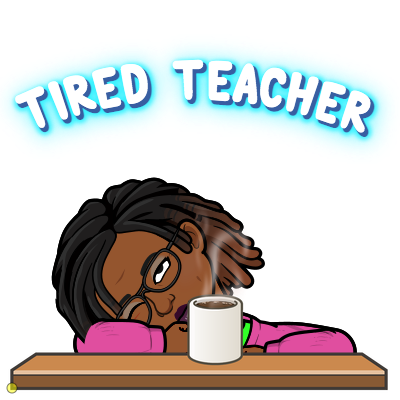I think digital natives are a real thing, but all digital natives are not fluent. The term native reminds me of the process that babies use to acquire language. A person is said to be a native speaker when they grow up surrounded by the language that is "native" to them. They grow up hearing their parents use the language and that's how they develop their proficiency. Some kids grow up with an amazing vocabulary and some students enter school at a deficit.
Digital literacy is the same. Some students grow up in households where they are surrounded by laptops, phones, reliable internet and online tools that are being used consistently and effectively. But some kids grow up in a house where they don't have those things, or where they don't see these tools put to effective use. Those students are, by definition, digital natives. But are they digitally fluent? Nope. Just because you know how to scroll through TikTok or Instagram, doesn't mean you can navigate online effectively.
As educators we need to focus on a students digital fluency rather than focus on when they were born. That means nothing. Every year I have a least one student who doesn't realize that you can hit shift to make a letter capital. They don't know how to save a file, much less share it with me. They have 200 documents that start with C because they don't understand that when you make a copy of something in google drive, you should change the name so that doesn't happen. Or, they make 4 copies of the same document because they can't find it. Schools should focus on making students digitally fluent. We need to teach the skills that help students use online tools effectively.

I very much agree with your thoughts here! Just like it is important to consider and assess the content knowledge students may have coming in to a class, it is equally important to consider and assess the technological knowledge students may have coming in to a class where technological use is expected. Teachers absolutely cannot assume that students are either fluent or not fluent in technology based off of a characteristic like age!
ReplyDeleteSo very interesting! I love your example of language. My first language is Spanish, but am I proficient in it? Ehh I wouldn't say so, but someone who know how to speak Spanish, but isn't native, would say yes! You made great points about focusing on digital fluency. I have students who have been surrounded by internet their entire lives. They don't understand how email works. It's pretty crazy.
ReplyDeleteThis is a great point, Tired Teacher. This reminds me of the Affordable Connectivity Program that recently got initiated, to offer low-cost and discounted internet services to the greater population and places of remote connectivity. About 20 internet service providers are offering better prices for lower income population... this seems quite late in the world of internet... however, better than never!
ReplyDeleteI agree, better late than never. Affordable internet is not longer a luxury, it is a necessity. My school provides every student with a device, but if you can't use it outside of the classroom, then it is of very little use.
Delete